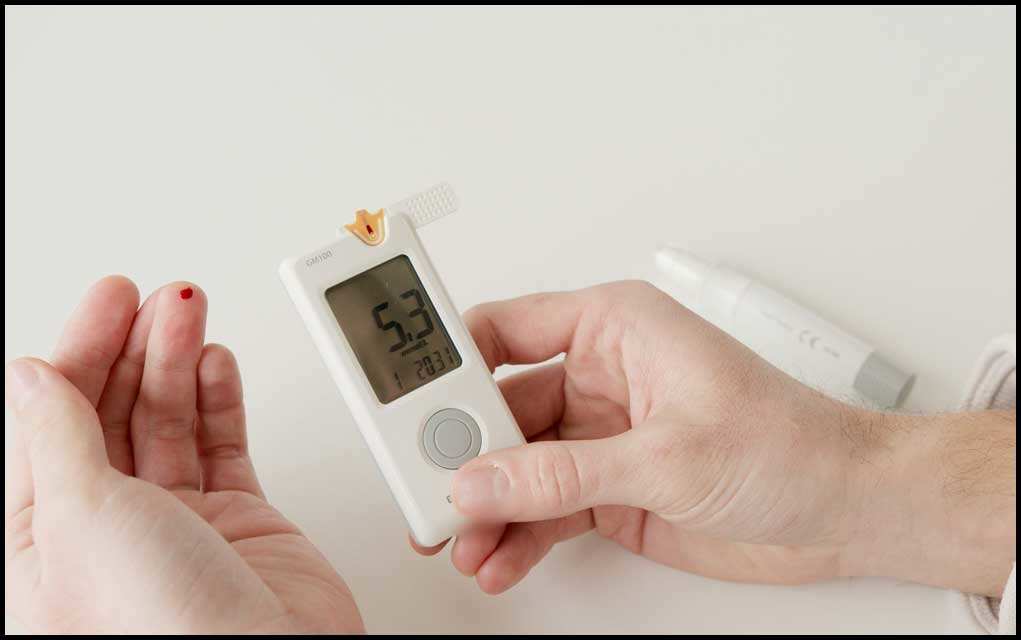The Basics
Diabetes is a common condition related to disruptions in your blood sugar level. Your blood sugar level plays an important role in how your body metabolizes food and how it uses energy. Diabetes occurs when your body can’t properly produce or use insulin to regulate blood sugar levels. It affects nearly 13 percent of people ages 20 and older.
Turmeric is a spice made from the ground roots of the turmeric plant. Over the years, turmeric has been recognized for its medicinal properties. It’s believed to have a wide range of health benefits, including pain relief and possible disease prevention.
For example, curcumin, the active component in turmeric, may help prevent type 2 diabetes.
What Are The Benefits Of Turmeric?
Turmeric is a spice often found in Asian food and curries. It helps give the food its yellowish color. For centuries, it has been used in Eastern medicine for general health. It’s often used for improving liver and digestion functions, as well as for easing pain from conditions such as arthritis.
The spice has a large following among alternative medicine users and is gaining popularity in mainstream medicine. Recently, it has received a lot of attention for its potential use in preventing cancer and other diseases. Turmeric is believed to have antioxidant properties that could help fight infection and inflammation.
Research has also suggested that taking turmeric could treat and prevent diabetes.
What The Research Says
Turmeric’s active component, curcumin, is credited with many of the spice’s purported benefits.
A 2013 review of studies suggests that curcumin can decrease the level of glucose in blood, as well as other diabetes-related complications. Researchers also found that curcumin may have a role in diabetes prevention. More clinical trials with humans are needed for a better understanding of curcumin and turmeric’s effects.
Other research suggests that turmeric extract could help stabilize blood sugar levels and make diabetes more manageable. This extract can be found in over-the-counter supplements. It may also provide general health benefits, such as in aiding digestion.
Risks And Warnings
Turmeric is generally regarded as safe for consumption. When curcumin, the active component of turmeric, is taken in large doses — more than is typically consumed in a meal flavored with turmeric — it may cause unpleasant side effects. A high dosage is typically considered above 4 grams of curcumin daily.
Side effects may include:
- nausea
- indigestion
- diarrhea
Repeatedly consuming large amounts of turmeric may cause liver problems.
If you have gallbladder disease, you should avoid turmeric. It may worsen your condition.
Consult with your doctor before using turmeric. They can assess your medical profile and discuss the potential benefits and risks.
Other Ways To Manage Diabetes
Generally, diabetes management means sticking to a healthy diet, exercising regularly, and maintaining a balanced lifestyle. Your doctor will work with you to help you develop the best management plan for you.
Most diet plans emphasize eating more whole foods. These foods include vegetables, fruits, and grains. If you have diabetes, it’s important to seek out foods that are high in fiber and low in sugar. This can help you to better maintain your blood sugar levels.
Doctors usually recommend regular exercise and activity, as this will also help to lower and stabilize your blood sugar levels.
If you have type 2 diabetes, you may be able to manage your condition through diet and exercise alone. People with type 1 diabetes, and some people with type 2, must also take insulin medication.
The Bottom Line
Although turmeric can be taken as a supplement to complement your regular regimen, it isn’t a substitute for your current healthcare plan. You should consult with your doctor to determine how to best move forward.
If you do use turmeric, there are a few things you should keep in mind:
- Be sure to read the label on all supplement packages and follow the instructions carefully. If you’re unsure of the dosage, speak with your doctor.
- As with other supplements, it’s often wise to start with a low dosage and gauge how you’re doing. You can build up from there.
- Turmeric may increase urinary oxalate levels or worsen anemia. Use it with caution if you have a history of kidney stones or anemia.
- Be aware that although most people can tolerate turmeric, some might find that it doesn’t agree with their stomach. Others could have allergies. Start with a smaller dosage.
- Avoid buying in bulk. Like other spices, it has its best properties when it is fresh. Whether you take the supplement or decide to add turmeric to your food, buy only what you need for the immediate future.
- If you cook with turmeric, understand that it doesn’t have the same health benefits as a supplement. The heat will take away some of the medicinal value.
- Pairing fat or oil with turmeric can improve the absorption of curcumin and bring more benefits.
Sources:
· Diabetes. (n.d.)
cdc.gov/nchs/fastats/diabetes.htm
· Mayo Clinic Staff. (2016, January 13). Type 2 diabetes: Treatment
mayoclinic.org/diseases-conditions/type-2-diabetes/diagnosis-treatment/treatment/txc-20169988
· Moynihan, T. (2014, December 23). Can curcumin cure slow cancer growth? Retrieved from
mayoclinic.org/diseases-conditions/cancer/expert-answers/curcumin/faq-20057858
· Product review: turmeric and curcumin supplements and spices. (2016, April 23)
consumerlab.com/reviews/turmeric-curcumin-supplements-spice-review/turmeric/#meriva
· Seven tips for taking turmeric (infographic). (2015, August 31)
health.clevelandclinic.org/2015/08/7-tips-for-taking-turmeric-infographic/
· Zhang, D.-w., Fu, M., Gao, S.-h., & Liu, J.-L. (2013, November 24). Curcumin and diabetes: A systematic review. Evidence-Based Complementary and Alternative Medicine, 636053
ncbi.nlm.nih.gov/pmc/articles/PMC3857752/
Important Notice: This article was originally published at www.healthline.com by Traci Angel where all credits are due. Medically reviewed by Natalie Butler, R.D., L.D.
Disclaimer
The watching, interacting, and participation of any kind with anything on this page does not constitute or initiate a doctor-patient relationship with Dr. Farrah®. None of the statements here have been evaluated by the Food and Drug Administration (FDA). The products of Dr. Farrah® are not intended to diagnose, treat, cure, or prevent any disease. The information being provided should only be considered for education and entertainment purposes only. If you feel that anything you see or hear may be of value to you on this page or on any other medium of any kind associated with, showing, or quoting anything relating to Dr. Farrah® in any way at any time, you are encouraged to and agree to consult with a licensed healthcare professional in your area to discuss it. If you feel that you’re having a healthcare emergency, seek medical attention immediately. The views expressed here are simply either the views and opinions of Dr. Farrah® or others appearing and are protected under the first amendment.
Dr. Farrah® is a highly experienced Licensed Medical Doctor certified in evidence-based clinical nutrition, not some enthusiast, formulator, or medium promoting the wild and unrestrained use of nutrition products for health issues without clinical experience and scientific evidence of therapeutic benefit. Dr. Farrah® has personally and keenly studied everything she recommends, and more importantly, she’s closely observed the reactions and results in a clinical setting countless times over the course of her career involving the treatment of over 150,000 patients.
Dr. Farrah® promotes evidence-based natural approaches to health, which means integrating her individual scientific and clinical expertise with the best available external clinical evidence from systematic research. By individual clinical expertise, I refer to the proficiency and judgment that individual clinicians acquire through clinical experience and clinical practice.
Dr. Farrah® does not make any representation or warranties with respect to the accuracy, applicability, fitness, or completeness of any multimedia content provided. Dr. Farrah® does not warrant the performance, effectiveness, or applicability of any sites listed, linked, or referenced to, in, or by any multimedia content.
To be clear, the multimedia content is not intended to be a substitute for professional medical advice, diagnosis, or treatment. Always seek the advice of your physician or other qualified health providers with any questions you may have regarding a medical condition. Never disregard professional medical advice or delay in seeking it because of something you have read or seen in any website, video, image, or media of any kind. Dr. Farrah® hereby disclaims any and all liability to any party for any direct, indirect, implied, punitive, special, incidental, or other consequential damages arising directly or indirectly from any use of the content, which is provided as is, and without warranties.









